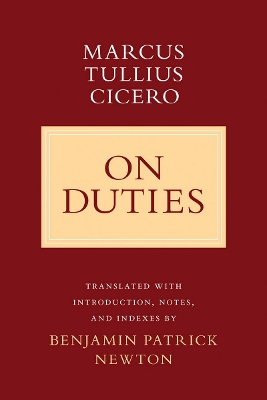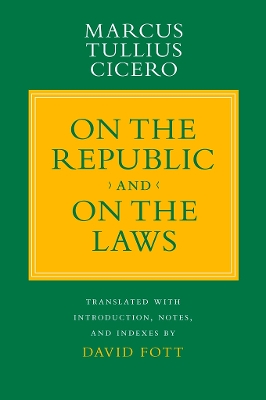Agora Editions
2 total works
Benjamin Patrick Newton's translation of Cicero’s On Duties is the most complete edition of a text that has been considered a source of moral authority throughout classical, medieval, and modern times. Marcus Tullius Cicero was a preeminent Roman statesman, orator, and philosopher who introduced philosophy into Rome, and through Rome, into Christendom and the modern world. On Duties was championed by important thinkers including Thomas Aquinas, Montesquieu, and Voltaire, and it was one of the earliest books printed on the Gutenberg press.The true significance of On Duties lies in its examination of several fundamental problems of political philosophy, the most important being the possible conflict between the honorable and the useful. The honorable encompasses the virtues of human beings, which include justice and concern for the common good. The useful refers to the needs of living beings, which includes certain necessities and concern for private good. Only by understanding the possible conflict between these two sides of human nature, Cicero declares, may we understand our duties to our community and to ourselves. This new edition of On Duties aims to provide readers who cannot read Latin but wish to study the book with a literal yet elegant translation. It features an introduction, outline, footnotes, interpretative essay, glossary, and indexes, making Cicero’s thought accessible to a general audience.
Cicero's On the Republic and On the Laws are his major works of political philosophy. They offer his fullest treatment of fundamental political questions: Why should educated people have any concern for politics? Is the best form of government simple, or is it a combination of elements from such simple forms as monarchy, aristocracy, and democracy? Can politics be free of injustice? The two works also help us to think about natural law, which many people have considered since ancient times to provide a foundation of unchanging, universal principles of justice.On the Republic features a defense of politics against those who advocated abstinence from public affairs. It defends a mixed constitution, the actual arrangement of offices in the Roman Republic, against simple forms of government. The Republic also supplies material for students of Roman history—as does On the Laws. The Laws, moreover, presents the results of Cicero's reflections as to how the republic needed to change in order not only to survive but also to promote justiceDavid Fott’s vigorous yet elegant English translation is faithful to the originals. It is the first to appear since publication of the latest critical edition of the Latin texts. This book contains an introduction that both places Cicero in his historical context and explicates the timeless philosophical issues that he treats. The volume also provides a chronology of Cicero’s life, outlines of the two works, and indexes of personal names and important terms.

